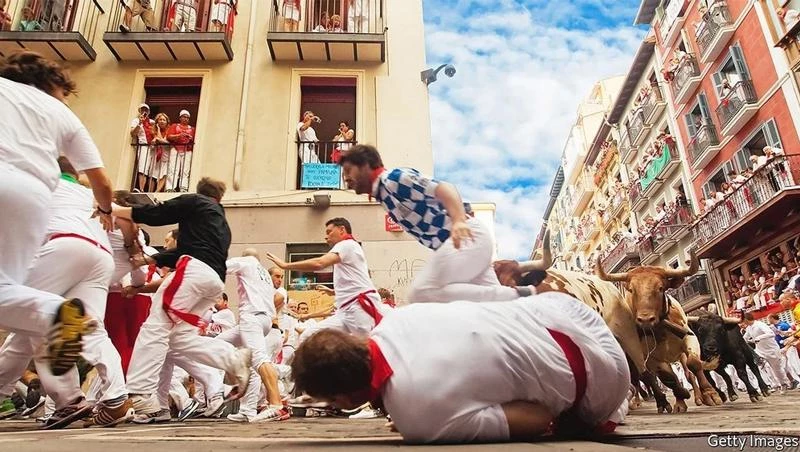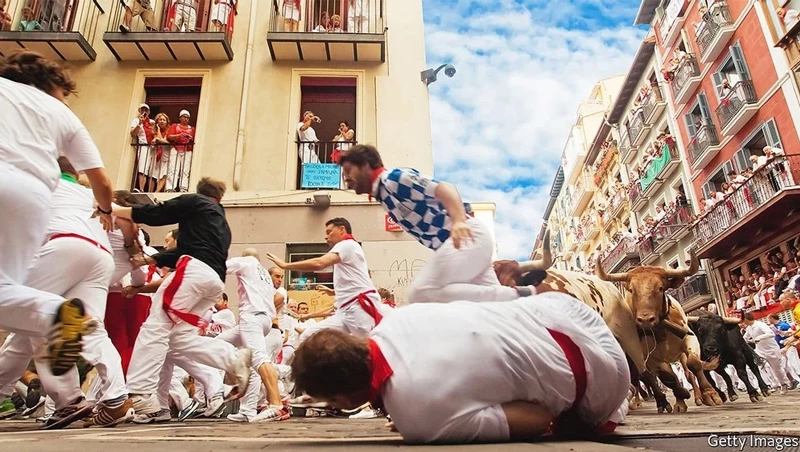
A Spanish tradition offers insight into how crowds behave.
Every year thousands of people converge on the city of Pamplona, in north-eastern Spain, for the opportunity to run for their lives as six fighting bulls are released to charge through the town. There are dozens of injuries every year, and there have been at least 15 deaths recorded since 1910. But the event is of interest to more than just adrenaline junkies and animal-rights activists. A paper just published in Proceedings of the National Academy of Sciences describes the insight the event offers into the psychology of panicked crowds.
That is a useful topic to explore. Architects, civil engineers and urban planners must try to work out how people will behave in the event of a disaster like a fire, a flood or a terrorist attack so they can design their creations to avoid potentially lethal crushes. Unfortunately, solid information is hard to come by. Ethics-review boards, after all, are likely to frown on researchers putting volunteers into deadly danger simply to study how they might behave. But Daniel Parisi, a physicist and computer scientist at the Technical Institute of Buenos Aires, and the paper’s lead author, realised that the Pamplona bull-runs offered the perfect natural experiment...
The Economist: What architects can learn from bull-running



